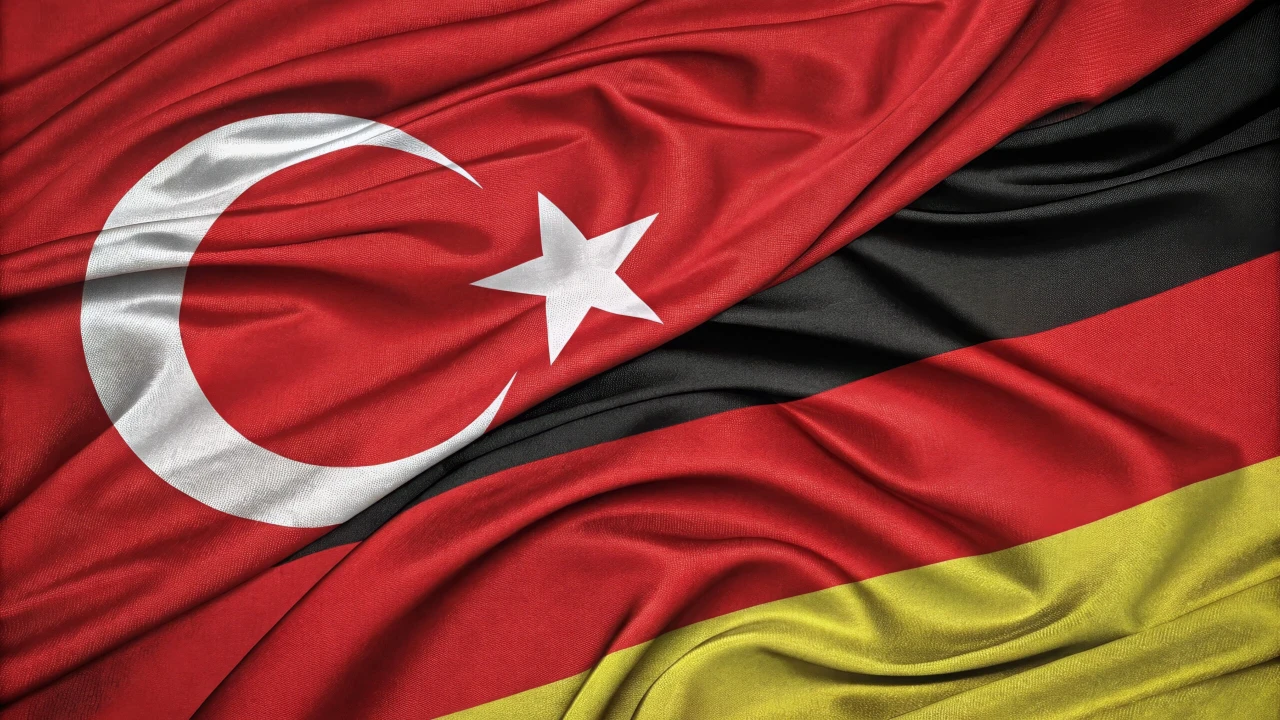Turkish community leader criticizes German coalition deal for sidelining Muslims
 Turkish and German flags merged side by side, displayed on a textured fabric background, accessed on April 11, 2025. (Adobe Stock Photo)
Turkish and German flags merged side by side, displayed on a textured fabric background, accessed on April 11, 2025. (Adobe Stock Photo)
The new coalition agreement between Germany’s Christian Democratic Union/Christian Social Union (CDU/CSU) and Social Democratic Party (SPD) has drawn criticism for its almost complete omission of issues related to Muslims and Islam, according to a prominent Turkish-German community leader.
Gokay Sofuoglu, co-chairman of the Turkish Community in Germany (TGD), told the Anadolu Agency that the agreement, which was unveiled on April 9 following 45 days of negotiations after the Feb. 23 early elections, fails to address the concerns of Germany’s Muslim population.
“Muslims and Islam are either not mentioned at all in the coalition agreement, or when they are mentioned, it’s in negative contexts related to security,” Sofuoglu said.
The coalition document outlines several measures aimed at controlling migration, including rejecting asylum-seekers at borders in coordination with neighboring countries, suspending family reunification for refugees with temporary protection status, ending voluntary refugee acceptance programs, and deporting foreigners who commit serious crimes.
Agreement to abolish turbo citizenship
Additionally, the agreement plans to abolish the “turbo citizenship” provision introduced by the previous government, which allowed foreign residents meeting certain criteria to obtain German citizenship after just three years of residence.
Sofuoglu expressed disappointment that the negotiating team of 19 people did not include anyone with a migrant background. “We see the consequences of migrants’ perspectives not being reflected in the coalition protocol,” he said.
While acknowledging positive steps regarding internal security and protection for Jewish communities, Sofuoglu criticized the lack of similar measures for other minority groups: “There’s very little commentary on the security of the Muslim community, Sinti and Roma, or Black people.”
He warned that the agreement reflects the growing influence of far-right ideology in German politics, noting that the issue is no longer just the rise of the Alternative for Germany (AfD) party but rather the mainstreaming of its ideas.
“It’s more dangerous that 60% of Germans now accept this mindset and are partners in government,” Sofuoglu argued. “Topics that couldn’t be discussed for years will now be talked about, unfounded accusations will be made, and far-right ideology will settle in the center of society.”
Coalition agreement offers little hope for immigrant communities
The TGD co-chairman added that the coalition agreement provides little data on improving the situation of immigrants in Germany, who make up about 25% of the population. He suggested that excluding this significant portion of society from the agreement makes it impossible to speak of social peace.
Looking at broader trends, Sofuoglu expressed concern about developments across Europe: “Europe is becoming a structure that moves away from its own values, trying to completely close in on itself, and in doing so, eliminating the reasons for its existence.”
Sofuoglu concluded that the tone of migration debates in Germany remains harmful, creating a perception that “migrants in Germany, especially Muslim migrants, are potential criminals.” He emphasized that those with migrant backgrounds should be represented in government roles, reflecting their 25% share of the population.



